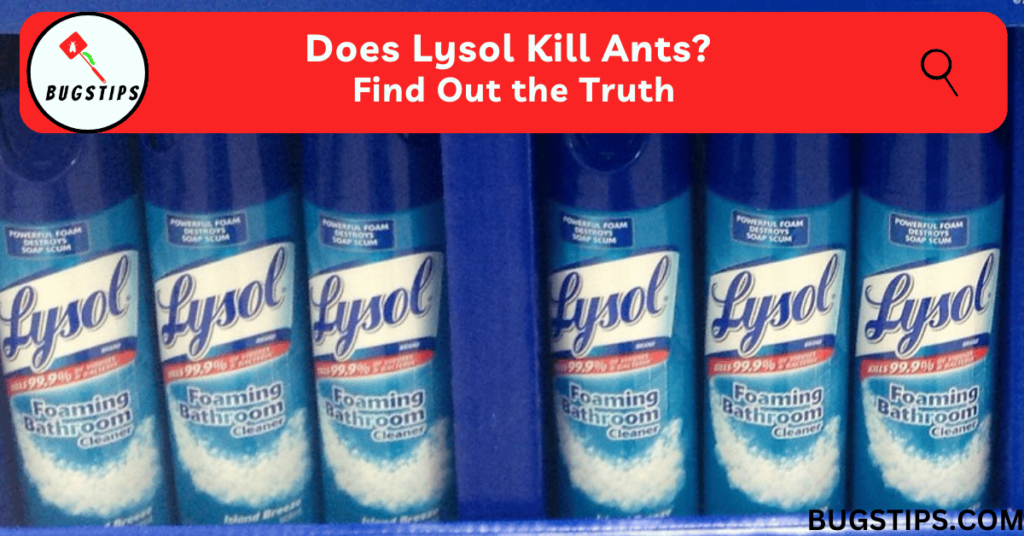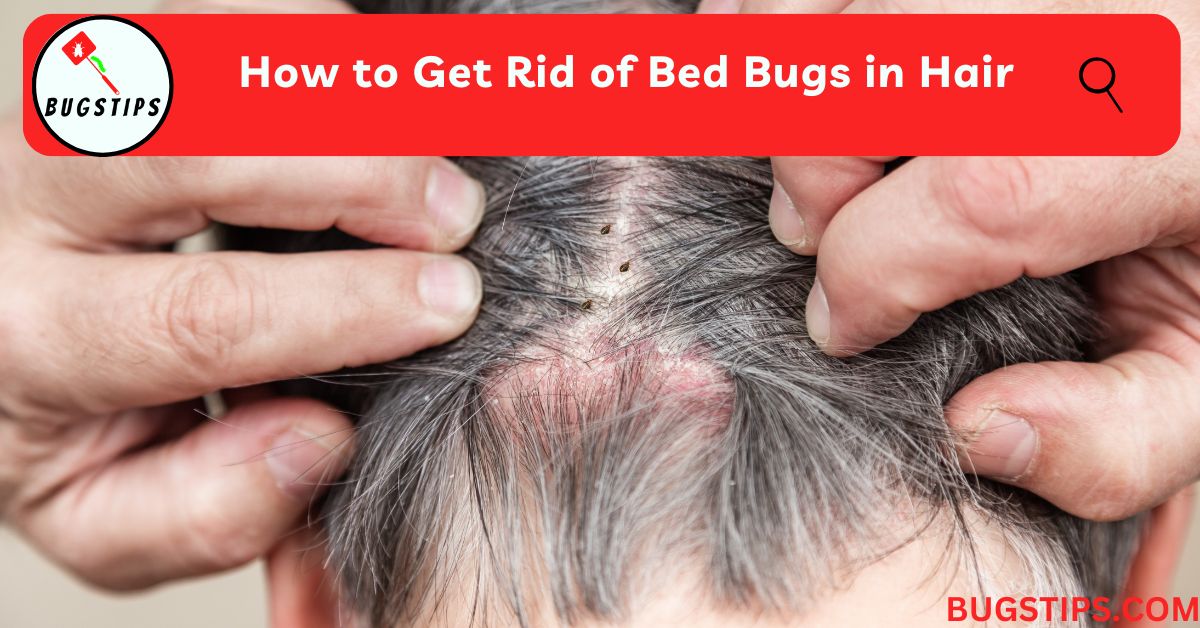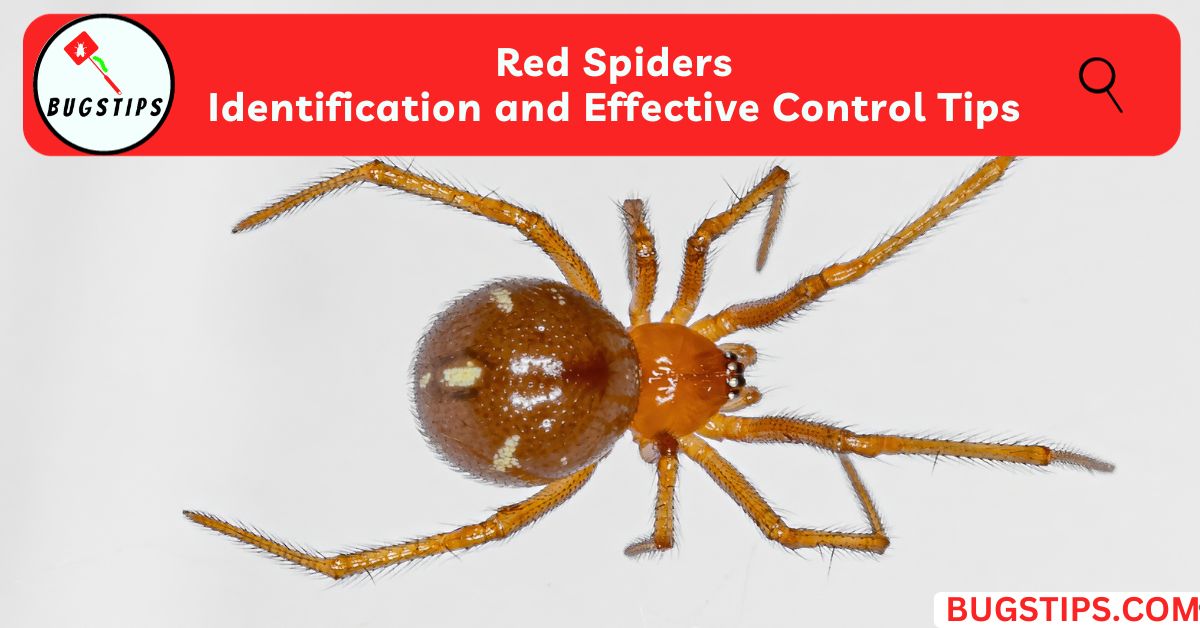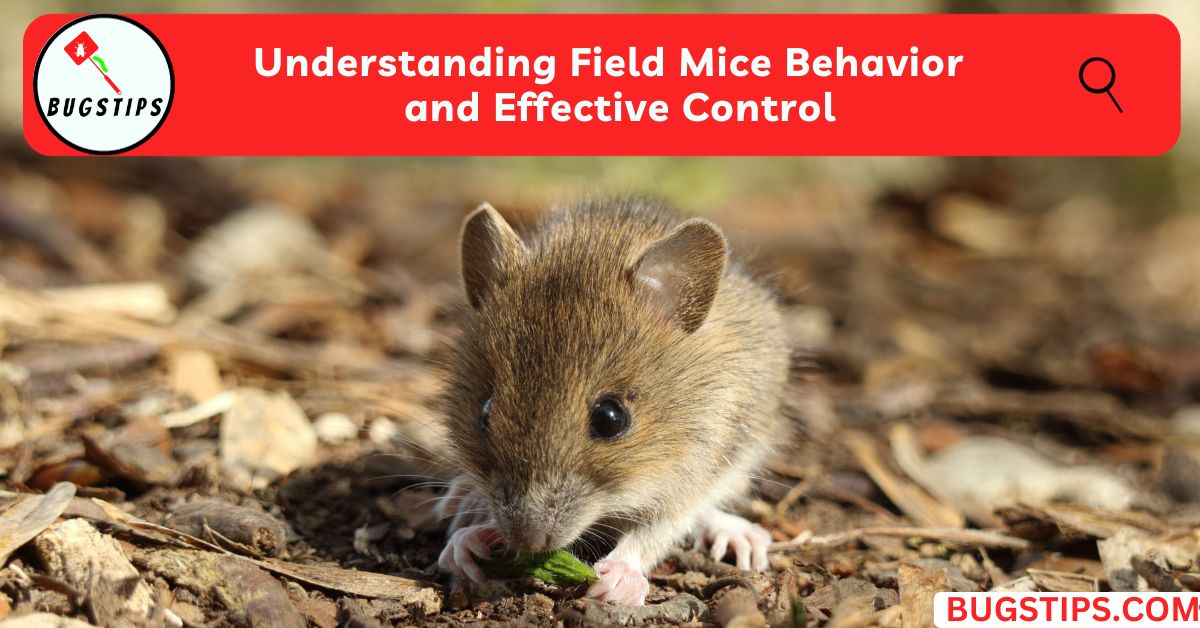This post may contain affiliate links which means as an Amazon Associate, this site may earn a small commission on qualified purchases made through links at no extra cost to you. Learn more on Affiliate Disclosure

If you’re dealing with an ant infestation, it’s only natural to search for solutions that can quickly eliminate the problem. One potential solution that may come to mind is Lysol, a popular household disinfectant that’s known for its powerful cleaning properties. But does Lysol kill ants?
The answer to this question is a bit complicated. While Lysol may be effective at killing certain types of insects and bacteria, it’s not specifically designed to kill ants. However, there are certain situations in which Lysol could potentially help to get rid of ants or prevent them from coming back.
In this article, we’ll take a closer look at Lysol and ants, and explore whether or not using Lysol is a good option for controlling ant infestations. So if you’re dealing with an ant problem and wondering if Lysol is the solution, keep reading to find out more.
Does Lysol Kill Ants? Understanding Lysol and its Composition
The answer is not as simple as a yes or no. To understand the effectiveness of Lysol on ants, we first need to understand its composition.
Lysol is primarily made up of quaternary ammonium compounds, also known as “quats.” These compounds are highly effective in killing bacteria and viruses, which is why Lysol is widely used for disinfecting surfaces. However, quats are not specifically designed to kill insects, such as ants.
While Lysol may not be an insecticide, it can still have an impact on ants. The strong scent of Lysol can deter ants from coming near treated areas. In fact, many people have reported success in using Lysol to keep ants away from their homes. But it is important to note that this is not a foolproof method, as some ant species may not be deterred by the scent of Lysol.
In addition to the potential repellent effect, Lysol can also be used to clean up ant trails and nests. By cleaning up these areas with Lysol, the scent trail left by ants can be disrupted, which can prevent other ants from following the trail and invading your home.
So while Lysol may not be specifically designed to kill ants, it can still have an impact on them. However, it is important to keep in mind that Lysol should not be used as a replacement for proper pest control methods.
Related Article – Does Lysol Kill Fleas? Know The Truth
How Does Lysol Kill Ants?
When it comes to killing ants, Lysol can be quite effective. Lysol contains ethyl alcohol, which has a number of effects on ants that can cause them to die.
Firstly, when Lysol comes into contact with ants, it dehydrates and burns them, which can be a quick and effective way to kill them. Additionally, Lysol disrupts the pheromone trail that ants use to communicate with each other, making it harder for them to find food and ultimately leading to their demise.

The active ingredient in Lysol, ethyl alcohol, also affects the ant’s nervous system, causing it to die. This effect is similar to that of insecticides, which target the nervous system of insects to kill them.
Moreover, ethyl alcohol can break down the ant’s exoskeleton, causing it to dehydrate and die. This is because ants rely on their exoskeletons to retain moisture, so when the exoskeleton is damaged, the ant will quickly lose water and die from dehydration.
Another way that Lysol can kill ants is by suffocating them. This happens when the Lysol is sprayed directly onto the ants, creating a film that covers their respiratory openings and causes them to suffocate.
Suffocation can be a slower and less effective method of killing ants compared to dehydration and disrupting the pheromone trail, but it can still be effective in the right circumstances.
How to Use Lysol to Kill Ants
To effectively use Lysol to kill ants, you have a few options. The first is to spray the Lysol directly on the ants themselves. This can be useful for small infestations or for ants that are easy to access.
However, for larger colonies, you may want to create a Lysol solution to pour on them. To do this, simply mix 2-3 tablespoons of Lysol All-purpose Cleaner with a cup of tepid water in a spray bottle.
When using the Lysol solution, make sure to spray it all over the ants, their trails, and colonies. It’s important to ensure that they are well-soaked in the solution so that it can effectively kill them.
You can also spray Lysol on areas where ants are likely to travel, and they will come into contact with the Lysol and die. If you’re dealing with an ant hill, spraying Lysol on it can kill both the ants and their eggs.
While Lysol can be effective in killing ants, it’s important to note that it may not be the best option available. There are other methods, such as bait stations or natural remedies like diatomaceous earth, that may be more effective in the long run. Additionally, it’s important to use Lysol safely and follow the instructions on the label.
Does Lysol kill ant eggs? What is The Effect of Lysol on Ant Eggs
When it comes to eliminating an ant infestation, it is crucial to target the ant eggs as well as the adult ants.
While Lysol is known to be toxic to ant eggs, it may not be the most effective method for the complete elimination of an ant colony. Ant eggs have a protective coating that makes them resistant to many household disinfectants, including Lysol.
If you do decide to use Lysol to target ant eggs, you can mix equal parts hot water and Lysol in a cup and pour it into the ant nest. This can help kill the queen and all her eggs. However, it is important to note that using Lysol alone may not be enough to completely eliminate an ant infestation.
Therefore, it is recommended to use a combination of different methods for ant control, including eliminating food sources, sealing off entry points, and using bait stations or insecticides specifically designed for ant control.
If you are dealing with a particularly stubborn ant infestation, it may be best to consult a pest control professional for effective and safe removal.
Precautions to Take When Using Lysol to Kill Ants
Before using Lysol to kill ants, it is important to take some precautions to ensure your safety and the effectiveness of the product. Here are some tips to keep in mind when using Lysol for ant control:
- Read the Label: Before using Lysol, make sure to read the label carefully. This will help you understand the proper way to use the product and any precautions you need to take. When using Lysol, it is essential to follow the instructions on the label to ensure maximum effectiveness and safety.
- Wear Protective Clothing: It is important to wear protective clothing when using Lysol. You should wear gloves and a face mask to protect your skin and respiratory system.
- Keep Children and Pets Away: It is essential to keep children and pets away from the area where you are using Lysol. This will help prevent accidental exposure to the product.
- Use in Well-Ventilated Areas: When using Lysol, make sure to use it in a well-ventilated area. This will help prevent any fumes from accumulating and causing harm.
- Dispose of Properly: After using Lysol, make sure to dispose of the empty container and any used wipes properly. Do not reuse any wipes, as this can spread germs and bacteria.
- Use Alternative Methods: While Lysol can be effective in killing ants, there are other methods available that may be less toxic and harmful to the environment. You can try using natural remedies, such as vinegar or peppermint oil, to repel ants.
By following these precautions when using Lysol to kill ants, you can ensure your safety and the effectiveness of the product.
Remember to always read the label, wear protective clothing, keep children and pets away, use in well-ventilated areas, dispose of them properly, and consider alternative methods. With these tips in mind, you can eliminate ant infestations in a safe and effective way.
You May Also Like – What Attracts Carpenter Ants: 10 Surprising Ways You’re Inviting Carpenter Ants
Alternatives to Using Lysol to Get Rid of Ants
While Lysol can be effective in killing ants, it is not always the best or most preferred method. If you’re looking for alternatives to using Lysol to get rid of ants, there are several options available that are safe and effective.
Here are some of the most popular alternatives to using Lysol to help you choose the best method for your ant problem.
- Vinegar – Vinegar is a natural ant repellent that can be used to deter ants from entering your home. Mix equal parts of white vinegar and water and spray the solution directly onto the ants, their trails, and their colonies.
- Baking Soda and Sugar – Create a mixture of baking soda and sugar in equal parts and sprinkle it in areas where ants are known to frequent. The sugar attracts the ants while the baking soda disrupts their digestive system, eventually killing them.
- Diatomaceous Earth – Diatomaceous Earth is a powder made from the fossilized remains of tiny, aquatic organisms called diatoms. When ants come into contact with it, the powder sticks to their bodies, causing them to dehydrate and die.
- Cinnamon – Cinnamon is another natural ant repellent that can be used to deter ants from entering your home. Simply sprinkle cinnamon powder in areas where ants are known to frequent.
- Mint – Mint is a natural ant repellent that can be used to deter ants from entering your home. Planting mint around your home or spraying a solution of peppermint oil and water can help keep ants away.
Why Lysol Shouldn’t Be Your First Choice for Ant Control
As mentioned in previous sections, while Lysol can be effective in killing adult ants, it is not the best solution for ant control. Here are some reasons why Lysol shouldn’t be your first choice for ant control:
Firstly, Lysol is not specifically designed to target ant infestations. While it may kill some ants, it will not necessarily eradicate the entire colony. Ants can quickly adapt and build immunity to the chemicals in Lysol, making it less effective over time.
And Lysol is toxic to humans and pets if ingested or inhaled. When using Lysol to kill ants, it’s important to keep it away from food and surfaces that come into contact with food. It’s also important to use Lysol in a well-ventilated area and to avoid breathing in the fumes.
Also using Lysol alone may not address the root cause of the ant infestation. Ants are attracted to food sources, so it’s important to keep your home clean and free of crumbs and spills. Sealing up entry points and eliminating any potential nesting sites can also help prevent ants from entering your home in the first place.
Lastly, there are other ant control options that are more specifically designed for ant infestations. Ant baits, for example, are a popular and effective solution that can help eradicate the entire colony, including the queen.
So overall, while Lysol may seem like a quick and easy solution for killing ants, it’s important to consider the potential risks and limitations of using this disinfectant spray.
Related Article – What Chemicals Do Exterminators Use for Ants?
Final Thoughts
If you’re dealing with an ant infestation, it’s understandable to want to reach for a quick solution like Lysol. However, as we’ve learned, Lysol is not an effective ant killer. Instead, try using ant baits, insecticides, or natural remedies to address the problem. And remember, the key to preventing future infestations is to keep your home clean and free of food and water sources that may attract ants.
We hope this article has been helpful in answering your question about whether Lysol kills ants. If you have any further questions or concerns about ant infestations, be sure to consult with a pest control professional. With the right methods and a little patience, you can get rid of ants and enjoy a pest-free home.
FAQ
Does Lysol repel ants?
Lysol is not designed to repel ants, but it may deter them temporarily due to its strong scent.
Can Lysol wipes help me get rid of ants?
No, Lysol wipes are not an effective way to get rid of ants. While they may kill some ants on contact due to their toxic ingredients, they are not specifically designed for ant control and may not eliminate the entire ant colony. I
What happens to ants when they come into contact with Lysol?
When ants come into contact with Lysol, they may die from the toxic chemicals in the cleaning product. Lysol contains chemicals such as ethanol and alkyl dimethyl benzyl ammonium saccharinate, which can be harmful to ants and other insects.
Will Lemon Lysol kill ants?
Lemon Lysol may kill ants due to its ingredients, including ethanol and alkyl dimethyl benzyl ammonium saccharinate. However, it’s not a recommended method for ant control since Lysol is not specifically designed to kill ants and may not eliminate the entire ant colony.
Is it OK to spray Lysol on bed?
No, it’s not recommended to spray Lysol on your bed or other surfaces where you or others may come into contact with it.
Can I use Lysol to clean up after an ant infestation?
Yes, you can use Lysol to clean up after an ant infestation on hard, non-porous surfaces. After you’ve eliminated the ant colony using ant baits, insecticides, or other methods, you can use Lysol to disinfect surfaces and remove any ant pheromones that may attract more ants.
Resources – (for further reading)
Wikipedia – Lysol
Lysol – Lysol Disinfectant Spray



